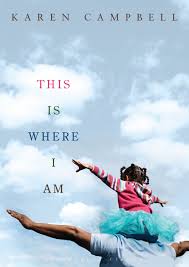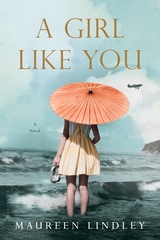 Should there be gender quotas in the boardroom? Why is it still hard for women to be single in 2013? What’s causing the different fertility rates in countries across Euro?
Should there be gender quotas in the boardroom? Why is it still hard for women to be single in 2013? What’s causing the different fertility rates in countries across Euro?
Today’s news headlines highlight the inequalities faced by women. Despite decades of social progress, women are still under-represented in top positions in government and in corporate leadership positions, and heated debates continue over women’s role within religions. Even women’s sporting achievements are still not accorded full recognition in society.
These issues and more, including recent developments in tackling the problem of violence against women, feature during a series of stimulating and challenging public events being held throughout the annual Cambridge Festival of Ideas (23 October – 3 November).
Corporate boards, female quotas and political theory. 6pm– 7pm, Tuesday 29 October. How should we allocate positions of power in today’s corporate sector? Aristotle argued that ‘the best flutes should be given to the best flute players’. Such thinking might lead us to reject the EU’s recent draft directive calling for all listed companies to give at least 40% of their board memberships to women. Drawing on various perspectives from the field of political theory, Dr Jude Browne considers the UK debate on corporate quotas.
How to be a single woman in 2013, whether you’re 25 or 60. 5pm– 6.30pm, Saturday 26 October. Times have never been better for single women. Then why is it still so hard? Four women, experts on psychology and relationships, share their insight and suggestions. The speakers are journalist and broadcaster Rowan Pelling; Cecilia d’Felice, clinical psychologist; Susan Quilliam, a Cambridge-based agony aunt and author; and Zoe Strimpel, a journalist and author on lifestyle and relationship topics.
Zoe, who recently completed an MPhil in Gender Studies at the University of Cambridge, commented, “Newspapers warn women not to ‘wait’ to have babies, adding on the pressure to do this in the context of a picture-perfect relationship with a man. Meanwhile, older single women are either called spinsters or – if they express sexual desire – pumas, cougars, cradle-snatchers. Despite considerable advances in other areas, it’s no wonder being a single woman, particularly aged 30 and above, remains a flashpoint for a huge amount of anxiety. In this discussion, we will unpack what’s gone wrong and how to get round it, joyously.”
Is it a feminist position to encourage women to work and study in male dominated fields? 7.30pm– 9pm, Monday 28 October. The beginnings of feminism date back over a hundred years and it’s 40 years since the equal pay act. Yet we still see inequality in our workplaces. Should a greater emphasis be made on the business case for employers to include a fuller range of talents and skills in the workforce?
Dr Jenny Koenig, a founder member of Cambridge AWiSE (Association of Women in Science and Engineering), will be part of the panel. Dr Koenig’s main interests concern the education and training of scientists, as well as the communication of science and she is a supervisor in Pharmacology for Lucy Cavendish and Wolfson College. A member of Cambridge University Students’ Union Women’s officers will also be on the panel to talk about their ‘I need feminism because…’ campaign.
Can Europe reproduce itself? Debating Europe’s fertility. 6pm– 7.30pm, Monday 28 October. Across the EU, people are having fewer children. However, fertility rates vary widely between countries. This panel considers the factors causing regional fertility differences and will debate Europe’s reproductive future. They will also consider what is behind recent headlines about the increase to the UK’s birth rate. The speakers are Professor David Coleman, Professor Sarah Franklin, Professor Richard Smith, Professor Simon Szreter, and Dr Chris Wilson.
Feminine frontiers of faith. 1pm– 2pm on Wednesday 30 October. A session with women of faith in leadership, featuring Laura Janner-Klausner, Rabbi to the Movement for Reform Judaism and Julie Siddiqi, Executive Director of the Islamic Society of Britain.
Laura and Julie met recently when both were taking part in a leadership course for faith leaders. Julie explained, “Laura and I have shared so many stories over the past few months, highlighting to us how similar the debates are in our respective communities around the issue of gender, the role of women, how that transpires at a community level and the importance that an informed debate still has.”
In this session, both speakers will share some of their own experiences of working as women of faith in Britain, outline some of the current thinking around those issues and give their thoughts about where they think the issue is heading in the future. Both women were independently chosen to speak at the Enough Food IF rally at Hyde Park in front of 40,000 last month on behalf of their faiths. Is that in itself is a change that signifies a shift in attitudes – women speakers chosen to represent both the Jewish and Islamic faith groups in Britain?
How far have we come? Ending violence against women and girls. 6pm – 7pm, Wednesday 23 October. The problem of violence against women and girls has been prominent in media coverage with many distressing cases coming to light over the last year and more. What steps are being taken through legal processes by organisations and academia to tackle the issues involved? Speakers include Norah Al-Ani of Cambridge Rape Crisis Centre.
There’s no stopping her: insights from Paralympian Claire Harvey. 5.30pm– 6.30pm, Thursday 24 October. The inspirational Paralympian Claire Harvey will also be speaking at the Festival, about her experiences of competition during 2012. Claire was captain of Paralympics GB’s Sitting Volleyball Team at last year’s Paralympics, and she will share her experiences of life, managing challenges and reaching the top of her game. This event has been co-organised with the University’s Equality and Diversity team.
Claire, who graduated from Cambridge University in 2006 with a Master’s degree in Criminology, said, “The 2012 Paralympics were an emotional rollercoaster and I feel so proud of every woman in the team and all that we have accomplished.
“The Paralympics opened up a discussion around disability. People hadn’t necessarily given too much thought to disabled people, and the Paralympics changed that. The Games showed people what social cohesion can achieve. It inspired a spirit of being in something together and working towards a positive goal.
“I fundamentally believe that sport changes lives: it’s vital, not just for athletes, but for people involved at any level, be it as a participant, a volunteer or a supporter. It teaches life skills, confidence, friendship and commitment.
“There are hundreds and hundreds of people in every sport, of different gender, sexuality and ability. The most important thing I’ve learnt is just to be yourself, because that is what has helped me achieve my goals.”
This year’s Cambridge Festival of Ideas is bursting with over 200 events for people of all ages. Those taking part include Rowan Williams, the former Archbishop of Canterbury and Master of Magdalene College, academics Mary Beard, Noreena Hertz, Anthony Giddens, Richard Evans and David Reynolds, artist Quentin Blake, MP Frank Field, authors Owen Jones and MJ Hyland and George the Poet.
The Festival was the first public engagement initiative by a UK university to bring together a large-scale free public programme for all ages exploring the diversity of subjects in the arts, humanities and social sciences. Events are held in lecture halls, theatres, museums and galleries around Cambridge and entry to most is free.
Malavika Anderson, the Festival of Ideas Coordinator, said: “The Festival of Ideas has grown significantly over the last few years, in terms of both the number as well as the diversity of events on offer. We were delighted to have welcomed over 14,000 visitors at the festival in 2012 and look forward to welcoming even more over 12 days this autumn. The theme this year, Frontiers, is being interpreted to explore how borders, boundaries and margins are being either challenged or reinforced around the world. The theme has inspired the development of some truly exciting events.”
The full Festival programme, which features a number of outstanding women across all topics, will be available on Monday, 2 September. For more information, please visit: www.cam.ac.uk/festivalofideas and follow us on:
Twitter: www.twitter.com/camideasfest #cfi2013
Facebook: www.facebook.com/cambridgefestivalofideas











